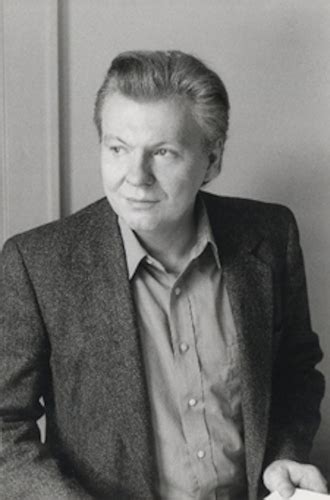A Quote by Marquis de Sade
The law which attempts a man's life [capital punishment] is impractical, unjust, inadmissible. It has never repressed crime - for a second crime is every day committed at the foot of the scaffold.
Related Quotes
To punish a man because he has committed a crime, or because he is believed, though unjustly, to have committed a crime, is not persecution. To punish a man, because we infer from the nature of some doctrine which he holds, or from the conduct of other persons who hold the same doctrines with him, that he will commit a crime, is persecution, and is, in every case, foolish and wicked.
The best crime stories are always about the crime and its consequences - you know, 'Crime And Punishment' is the classic. Where you have the crime, and its consequences are the story, but considering the crime and the consequences makes you think about the society in which the crime takes place, if you see what I mean.
Every time a crime was committed by a Muslim, that person's faith was mentioned, regardless of its relevance. When a crime is committed by a Christian, do they mention his religion? ... When a crime is committed by a black man, it's mentioned in the first breath: 'An African American man was arrested today...' But what about German Americans? Anglo Americans? A white man robs a convenience store and do we hear he's of Scottish descent? In no other instance is the ancestry mentioned.
The most absurd apology for authority and law is that they serve to diminish crime. Aside from the fact that the State is itself the greatest criminal, breaking every written and natural law, stealing in the form of taxes, killing in the form of war and capital punishment, it has come to an absolute standstill in coping with crime. It has failed utterly to destroy or even minimize the horrible scourge of its own creation.
But [your crime] will be there, one hundred times denied, always there, dragging itself behind you. Then you will finally know that you have committed your life with one throw of the die, once and for all, and there is nothing you can do but tug our crime along until your death. Such is the law, just and unjust, of repentance. Then we will see what will become of your young pride.
Once I got interested in organized crime, and, specifically, Jewish organized crime, I got very interested in it. I have learned that, like my narrator Hannah, I'm a crime writer in my own peculiar way. Crime with a capital "C" is the subject that I'm stuck with - even Sway is about "crime" in a certain way. The nice thing about crime is that it enables you to deal with some big questioO
Governments have tried to stop crime through punishment throughout the ages, but crime continued in the past punishment remains. Crime can only be stopped through a preventive approach in the schools. You teach the students Transcendental Meditation, and right away they'll begin using their full brain physiology sensible and they will not get sidetracked into wrong things.
All attempts at law, all religion, all ethical norms might be nothing more than attempts by the weak to restrain the strong. Then, within the law, arise the new strong, who subvert the law for their own ends of power and family interest, leaving the old strong outside their circle to pursue the waiting possibilities which they call crime. The weak, the cowardly, the decent ones, live between these groups.





































